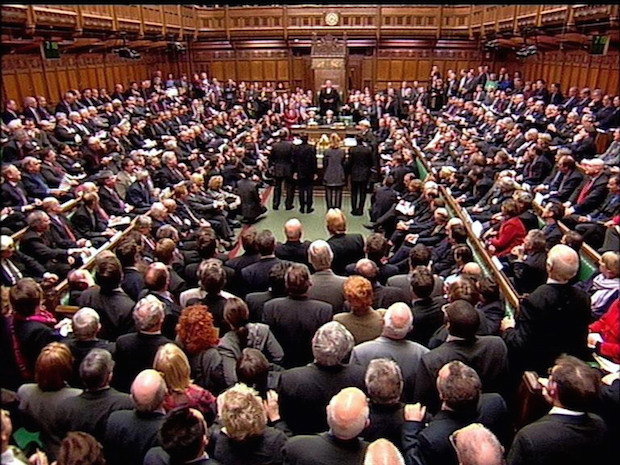So MPs are now set for a 10 per cent pay rise, taking their basic salaries to £74,000. Cue fury about MPs shoving their snouts in the trough as they award themselves a pay rise. Social media is bristling with fury that MPs could be so out of touch.
The reality is, of course, that MPs are not awarding themselves anything. They have no power over their pay. They have not voted on their pay and they will not vote on their pay. This is because they contracted decisions on pay out to an independent body, IPSA, to make these decisions. One of the reasons for setting up IPSA was so that MPs could not vote on their pay and be accused of being selfish, or be too frightened of being accused of being selfish to vote on a pay rise, even if they believed that to be the right thing to do.
IPSA has launched its final consultation on the 10 per cent pay rise today, arguing that the IMG and the OBR ‘predict that the UK will continue to be economically healthy over the coming years’ and that therefore ‘we can see no clear reason why the economic circumstances today should lead us to depart from the determination of £74,000 that we reached in December 2013’. The expenses and pay regulator says it invites ‘submissions as to any new and compelling evidence that might cause us to reconsider’ before the consultation closing date of 30 June 2015.
What will then happen is that unless IPSA changes its mind, MPs’ pay will go up. They will not be able to vote on it, and IPSA says there is no mechanism for refusing the pay rise, though presumably they could give away the extra £7,000, if they wish.
The only way MPs can ‘vote on their pay’ is to vote to dismantle IPSA, or at least to take away its function in setting MPs’ pay. In which case they would be voting because the regulator, which they set up to make decisions for them, has made the wrong decision in their view.
So if you see graphics like these doing the rounds in the next few months that claim there has been some kind of ‘pay debate’, they’re wrong because there won’t be one. Do tweet any at me, as I can think of nothing better to do than hunt through the Press Association image archive to find out which decade-old vote on tuition fees the purported ‘pay debate’ actually is (see the picture above).
As for whether MPs should get a pay rise, IPSA claims that this brings their salaries ‘to an appropriate and professional level’ and that thereafter pay should keep pace with national average earnings. It does admit that ‘we found no evidence that the level of pay had a direct impact on candidates putting themselves forward for election to Parliament, or on MPs continuing to serve. Nonetheless we must not set a level of pay that is either so high that it encourages people to stand for Parliament for the money, or so low that people from many professions are unduly deterred from standing’.
Perhaps the regulator is looking at the wrong thing: before being elected to a job that pays far more than the average salary, political candidates end up spending tens of thousands of pounds of their own money on getting elected, which is surely a bigger barrier to anyone who simply cannot afford such an expensive job interview. Others may be put off by the revulsion for MPs who according to popular belief, are still awarding themselves a pay rise when in reality, many of them are so mindful of the fury this will provoke that they seem absolutely terrified by the prospect of earning more.







Comments